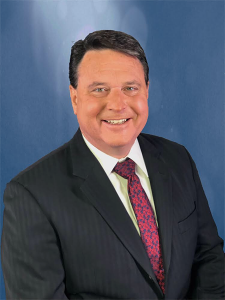Subscriber Benefit
As a subscriber you can listen to articles at work, in the car, or while you work out. Subscribe NowA federal judge on Wednesday temporarily blocked a federal rule in 24 states including Indiana that is intended to protect thousands of small streams, wetlands and other waterways throughout the nation.
U.S. District Judge Daniel L. Hovland in Bismarck, North Dakota, halted the regulations from the U.S. Environmental Protection Agency and U.S. Army Corps of Engineers pending the outcome of a lawsuit filed by the 24 states, most of which are led by Republicans. The regulations were finalized in December 2022, repealing a rule implemented during President Donald Trump’s administration but thrown out by federal courts.
Opponents of the regulations, which define which “waters of the United States” that are protected by the Clean Water Act, have called the rules an example of federal overreach and argued they would unfairly burden farmers and ranchers.
The preliminary injunction affects Alabama, Alaska, Arkansas, Florida, Georgia, Indiana, Iowa, Kansas, Louisiana, Mississippi, Missouri, Montana, Nebraska, New Hampshire, North Dakota, Ohio, Oklahoma, South Carolina, South Dakota, Tennessee, Utah, Virginia, West Virginia and Wyoming. An injunction was previously issued that halted the rules in Texas and Idaho.
In his 45-page order, Hovland wrote that the federal regulation “raises a litany of … statutory and constitutional concerns and would cause great harm to the states.”
“Once again, the courts have affirmed that the Biden administration’s WOTUS rule is overreaching and harmful to America’s beef farmers and ranchers,” said Todd Wilkinson, a South Dakota cattle producer and president of the National Cattlemen’s Beef Association. “Cattle producers in 26 states now have some additional certainty while this rule is being litigated and we are optimistic that the Supreme Court will provide nationwide clarity on the federal government’s proper jurisdiction over water.”

Indiana Attorney General Todd Rokita, a Republican, also celebrated the ruling, releasing a statement Thursday saying, “We all want to conserve and preserve our natural resources. At the same time, exercising wise stewardship over the environment does not require citizens to surrender their legitimate liberties and rights to the federal government. And, in fact, we cannot tolerate edicts designed to subjugate free people in such a manner.”
The EPA said in a statement that the agency and the Army Corps of Engineers were reviewing the decision but still believe the regulations were “the best” interpretation of the Clean Water Act. The agency says its rules would still stand in states not included in the injunction.
“The agencies remain committed to establishing and implementing a durable definition of ‘waters of the United States’ informed by diverse perspectives,” the EPA said in the statement. “Our goal is to protect public health, the environment, and downstream communities while supporting economic opportunity, agriculture, and industries that depend on clean water.”
The injunction comes less than a week after President Joe Biden vetoed a congressional resolution that would have overturned the rule. The House and Senate had used the Congressional Review Act to block the regulations, with several Democrats joining Republicans in opposing the regulations.
John Rumpler, clean water program director at Environment America, a national network of state environmental organizations, said the EPA rule blocked by the judge is supported by science and the law and that the judge was misreading the purpose of the Clean Water Act.
“From a favorite stream for fishing to the water flowing from our kitchen sinks, we all depend on clean water to survive and thrive,” Rumpler said in a statement. “That is why an overwhelming number of Americans support stronger protections for our waterways.”
However, West Virginia Attorney General Patrick Morrisey said the key is finding the right balance between powers given to states and the federal government.
“This rule would harm jobs and economic growth by taking jurisdiction from states and asserting federal authority over nearly any body of water, including roadside ditches, short-lived streams and many other areas where water may flow only once every 100 years,” Morrisey said.
Please enable JavaScript to view this content.

